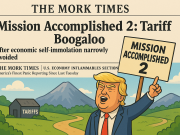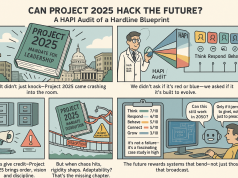The landscape of work is transforming before our eyes, and it’s a topic that ignites debates in boardrooms and coffee shops alike. As we stand at the crossroads of innovation and tradition, The Work Times remains committed to ushering in a new era of dialogue that cuts through the noise, presenting clear, informed perspectives on the future of work, technology, and ethics.
Firstly, let’s talk about the Automation Equation. With AI and robotics seamlessly integrating into our daily business operations, there’s a palpable anxiety around the obsolescence of certain job roles. While some predict a dystopian job market, others see a chance for human creativity to reach unprecedented heights. Employers are now faced with the task of navigating this transformation responsibly, which includes investing in upskilling their workforce to prepare for future demands.
Moving onto the Remote Work Revolution, it’s evident that when done right, remote work can unlock productivity and offer a better work-life balance. However, it also brings to the forefront the challenge of maintaining company culture and employee engagement. The businesses thriving in this new normal are those reimagining their workflows to prioritize outcomes over processes, while also placing employee well-being at the center of their operational strategies.
The Gig Economy and Worker Rights are equally pressing issues. The gig economy offers flexibility and independence, but it also raises significant concerns around job security and benefits. The debate is no longer about whether this model is viable, but how it can be structured to ensure those who contribute to the economy through gig work are fairly compensated and protected.
In discussing Ethical Considerations of Surveillance and Worker Privacy, it’s crucial to strike a balance. While technology allows for unparalleled oversight, companies must delineate clear ethical guidelines to prevent overstepping and ensure that employee privacy is not compromised, thereby fostering a culture of mutual trust and respect.
When it comes to Diversity, Equity, and Inclusion in Hiring, technology is a double-edged sword. Innovative hiring tools have the potential to minimize unconscious biases, yet they can also perpetuate them if not carefully managed. A dedicated effort to audit these technologies for bias and promote inclusive practices is essential for building workplaces that truly reflect our diverse society.
Lifelong Learning and Skills Development have never been more critical. The only constant in today’s employment landscape is change, and both individuals and organizations must commit to continuous learning. Embracing a culture where skill development is encouraged and facilitated is key to staying relevant and resilient.
Lastly, The Role of Governments and Policy Makers is a cornerstone in ensuring the future of work is bright for all. As technology outpaces regulation, it’s imperative that policy reflects the realities of the modern workplace and is designed to protect and empower the workforce.
In conclusion, the future of work is a multifaceted challenge that requires a collaborative approach. Entrepreneurs, startups, established companies, and policymakers must all play a part in crafting a work environment that is innovative, fair, and ethical. The Work Times, like its readers, believes in a future where the evolution of work aligns with human values and potential.
We hope this exploration provides both a mirror to our current state and a compass for the journey ahead. Together, let’s shape a world of work that we can all be proud to be part of.




























